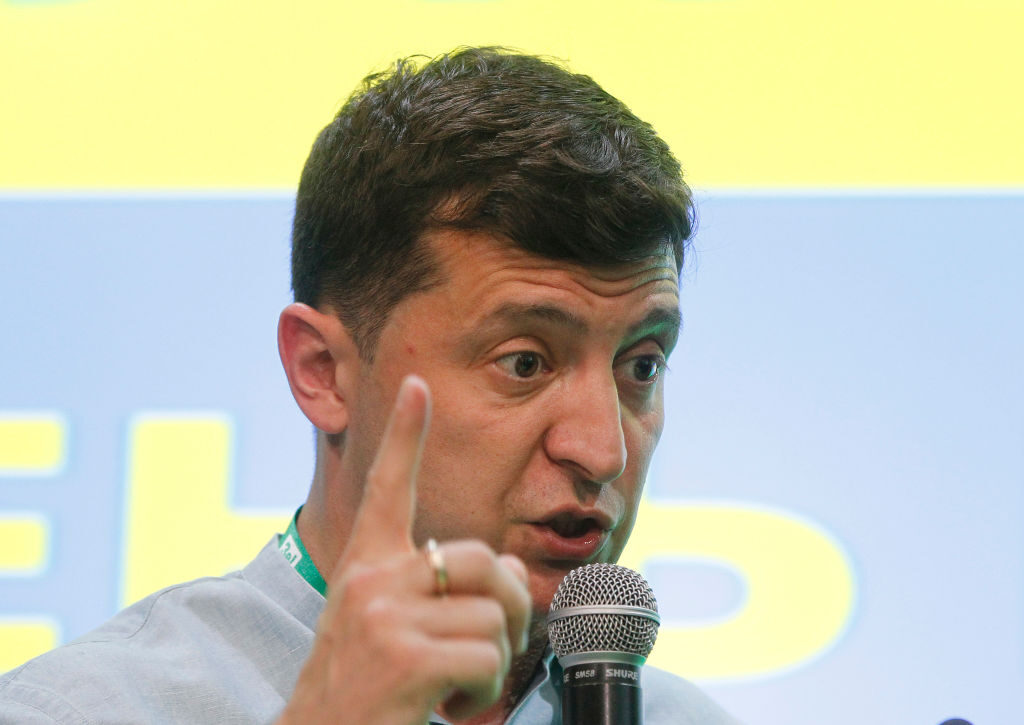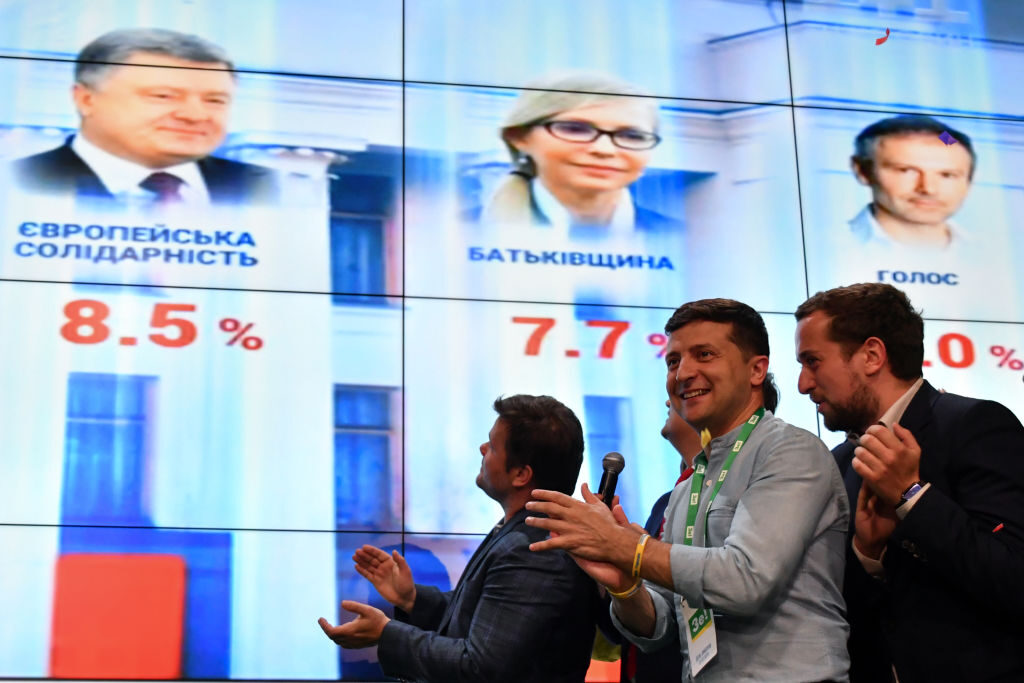Zelensky: ‘Absolutely Irresponsible’ to Suggest Holding Elections in Ukraine
Ukrainian President Volodymyr Zelensky told his people in a nightly address on Monday that discussions about the scheduled 2024 presidential election in his country were “absolutely irresponsible” in light of the ongoing Russian invasion of his country.
Zelensky became president after winning the 2019 election as the “pro-Russian” candidate against the establishment, pro-West incumbent Petro Poroshenko. The current president’s approval ratings had declined significantly in 2020 in response to his perceived poor response to the Wuhan coronavirus pandemic but skyrocketed in response to the Russian “special operation” to oust him that began in February 2021.
Zelensky’s presidential term is scheduled to end in 2024 but, as Ukraine is currently in a state of martial law, it is unconstitutional to hold a presidential race. Zelensky had previously stated that he would be open to holding elections if Western countries paid for them, however, and his top diplomat Dmytro Kuleba had suggested Kyiv was open to a presidential election this year as recently as November 3.
In his address on Monday, Zelensky expressed frustration with those in his country discussing if an election next year is possible – or anything aside from ousting the Russian military from Ukrainian soil.
“Now everyone should think about defending our country. We need to pull ourselves together, avoid unwinding and splitting up into disputes or other priorities,” Zelensky said, according to a translation by the Ukrainian state outlet Ukrinform. “If there is no victory, there will be no country. Our victory is possible. It will come if we all focus on it. Not on politicking or searching for some personal interest. Not on disagreements that will do nothing for the country, defense, and our advancement.”
“Everyone should remember what is most important in Ukraine right now. The enemy is insane. And it is powerful. And it wants to destroy Ukraine, just as it has always wanted to,” the president emphasized.
On the issue of elections, Zelensky explicitly stated, “now is not the time for grand celebrations or other brazen things in the rear, which are unacceptable in times of war.”
“We all understand that now, in wartime, when there are so many challenges, it is absolutely irresponsible to throw the topic of elections into society in a lighthearted and playful way,” he continued.
“I believe that now is not the right time for elections,” he repeated later in his address. “And if we need to put an end to a political dispute and continue to work in unity, there are structures in the state that are capable of putting an end to it and giving society all the necessary answers.”
Zelensky’s strident opposition to a presidential campaign occurring in anticipation of the scheduled 2024 election is a slightly more rigid stance than the president had taken in August, when discussing the possibility of elections in an interview. Then, Zelensky insisted that the true obstacles to holding elections were the need for defense funding and the disbursement of the Ukrainian population across Europe in response to the war. He suggested holding elections so long as he did not have to pay for them.

File/Ukrainian President Volodymyr Zelensky speaks at his the ‘Servant of the People’ political party’s headquarters after the parliamentary elections in Kiev, Ukraine, on 21 July 2019. ( STR/NurPhoto via Getty Images)
“I told [Sen. Lindsey Graham (R-SC)]: If the United States and Europe give us financial support … I’m sorry, I will not hold elections on credit, I will not take money from weapons and give it to elections either,” Zelensky said at the time. “But if you give me this financial support, if the parliamentarians realize that we need to do this, then let’s quickly change the legislation and, most importantly, let’s take risks together.”
“We need help from Europe here, because Ukrainians today are mostly in the European Union,” he continued. “Polling stations must be opened there so that people can come. 7 million people have to vote. We do not have such infrastructural capacities – we need to provide appropriate opportunities there.”
Zelensky estimated that elections cost about $135 million during peacetime. He nonetheless insisted, however, that he wanted elections to take place regardless of the state of the war: “We need an election in Ukraine next year. I want to see this country have a free and fair election even while it is under assault.”
As recently as a week prior to Zelensky’s statements on Monday, Kuleba, the foreign minister, had insisted the Zelensky administration was “not closing this page” on the possibility of elections.
“We are not closing this page. The president of Ukraine is considering and weighing the different pros and cons,” Kuleba claimed.

File/Ukrainian President Volodymyr Zelensky reacts in front of a screen displaying exit polls results at his Servant of the People party’s election headquarters in Kiev on July 21, 2019, following a day of polling in the country’s parliamentary election. (GENYA SAVILOV/AFP via Getty Images)
Should Ukraine hold a presidential election, the political disarray in the aftermath of the war leaves no clear opponent to Zelensky. Poroshenko, his one-time rival, has vocally supported Zelensky during the war, making for an awkward campaign against Zelensky should he decide to run. Zelensky outlawed 11 left-wing political parties for allegedly maintaining ties to Russia in March 2022, including the largest left-wing opposition party, the Opposition Platform – for Life.
Other banned parties include the Socialist Party of Ukraine, the Progressive Socialist Party of Ukraine, the Socialists, and the Union of Left Forces.
Zelensky’s approval rating skyrocketed above 90 percent in response to the Russian invasion in February 2022, but had fallen into the 30s prior to the “special operation.” In early February 2022, a poll by the Kyiv International Institute of Sociology found 30 percent of Ukrainians wanted Zelensky to run and nearly 80 percent would not vote for him. Zelensky’s erratic coronavirus response – including harsh lockdowns, a shirtless photo shoot, and a bizarre threat to infect himself with coronavirus to “make sure people perceive it less stressfully” – triggered waves of protests against Zelensky.





Comments are closed.